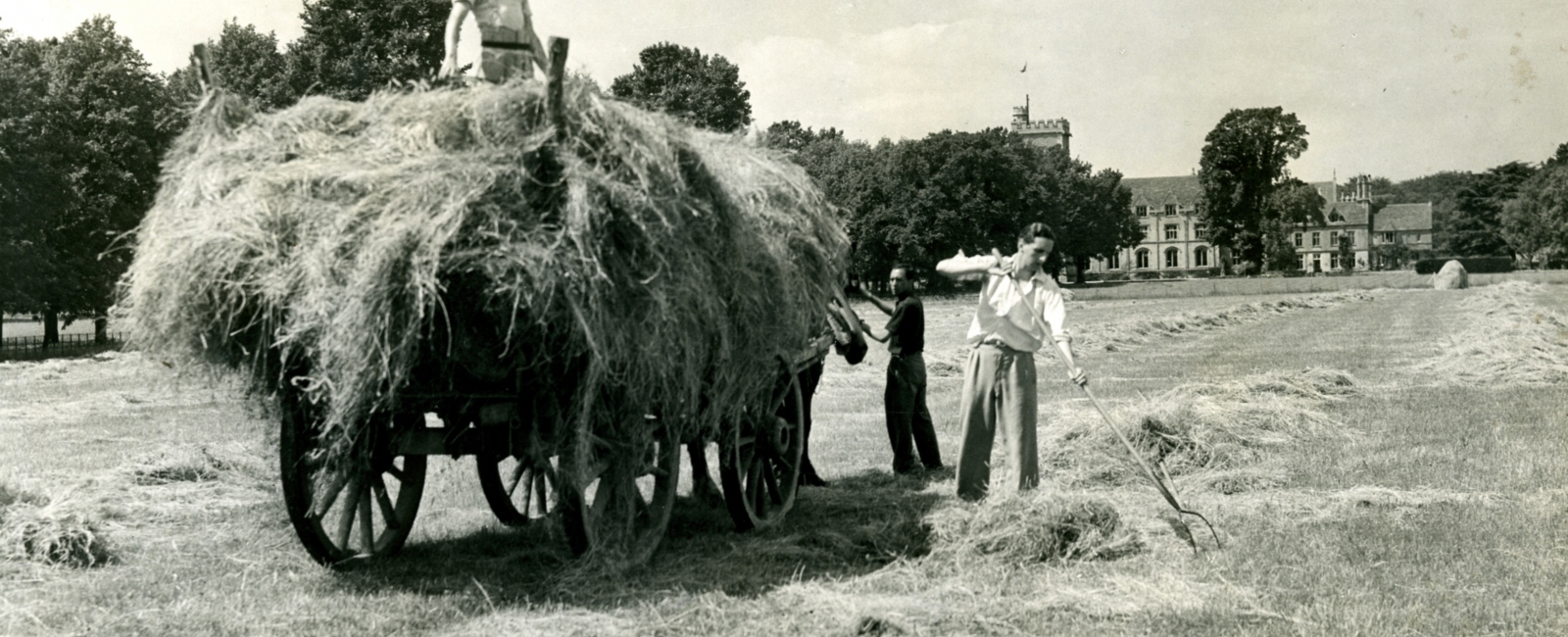History

The Royal Agricultural College (RAC), now the Royal Agricultural University (RAU), was the first agricultural college in the English speaking world. In 1842, the seeds were sown at a meeting of the Fairford and Cirencester Farmers Club.
Concerned by the lack of government support for education, Robert Jeffreys-Brown addressed the meeting on the ‘Advantages of a Specific Education for Agricultural Pursuits’. A prospectus was circulated, a general committee appointed and Earl Bathurst was elected President. Funds were raised by public subscription with much of the support coming from the wealthy landowners and farmers of the day; there was no Government support.
Earl Bathurst leased a site to build the College and construction in the Victorian Gothic style began in April 1845. Queen Victoria granted the Royal Charter to the College in the same year and Sovereigns have been Patrons ever since, visiting in every reign. His Majesty King Charles III became President in 1982 while he was the Prince of Wales.
The first 25 students were admitted in September 1845 and the following year student numbers increased to 108. Many of those early students went on to careers in Colonial Agricultural Administrations and the Diplomatic and Foreign Service.
From its early days, the College was staffed with innovators and pioneers and made a considerable impact on farming practice and agricultural science. In 1931, Professor R ("Bobby") Boutflour, CBE, became Principal. Professor Boutflour was largely responsible for raising the prestige of the College to its present high standards. It was said of Boutflour, on his death in 1961, that he was "... the most capable, colourful and forceful character that ever adorned the fields of agriculture". Frank Garner, the next Principal, enhanced the educational standards and Sir Emrys Jones, his successor, was responsible for the Hosier Library and the Frank Parkinson Lecture Theatre.
Vic Hughes, whose service to the College is one of the longest recorded, uplifted the teaching standards by the establishment of the many degree programmes that the University can now offer. The first modern degree programme, started in 1984, was in co-operation with Reading University - a BSc (Hons) degree in Rural Land Management. Subsequently, as the RAC, the University reclaimed its right to award degrees from the Privy Council. The RAC had been independent of government control since its foundation until 2001 when it first received funding from the Higher Education Funding Council for England (HEFCE), allowing it to widen access to its courses to students of all backgrounds.
In 2013, the Privy Council awarded the College full University Status, in recognition of its provision as a higher education institution. The Royal Agricultural University will continue to lead the development of teaching and research in agriculture, agri-business, equine, food, and land & property management.
The University motto is 'Arvorum Cultus Pecorumque'; a quote from Virgil's Georgics, it means 'Caring for the Fields and the Beasts'. What more appropriate maxim could there be for a University which, in every facet of its teachings, now incorporates a wider understanding of our countryside?